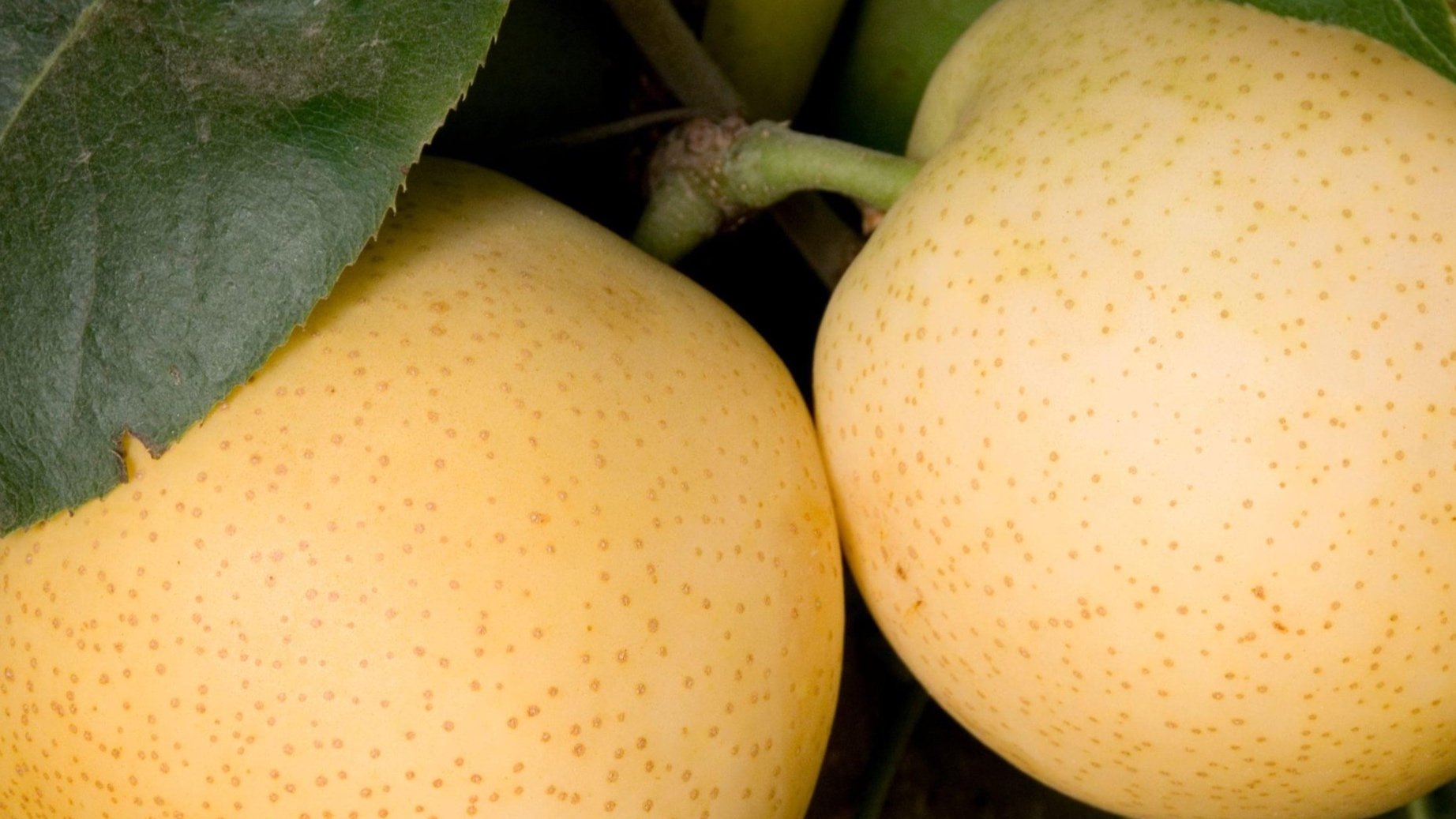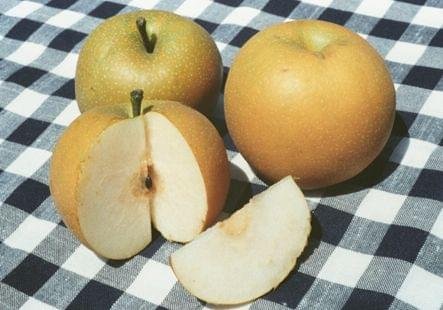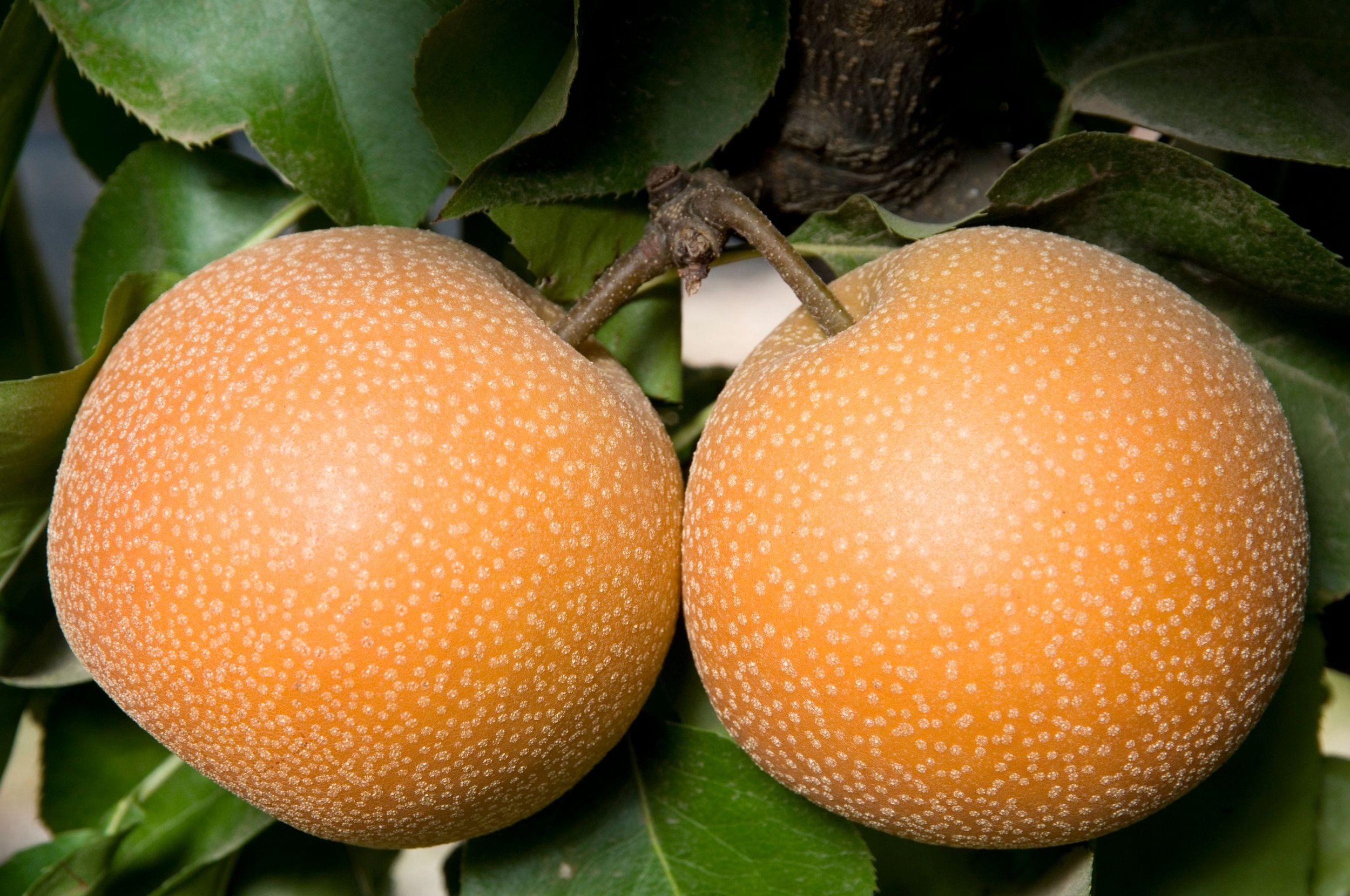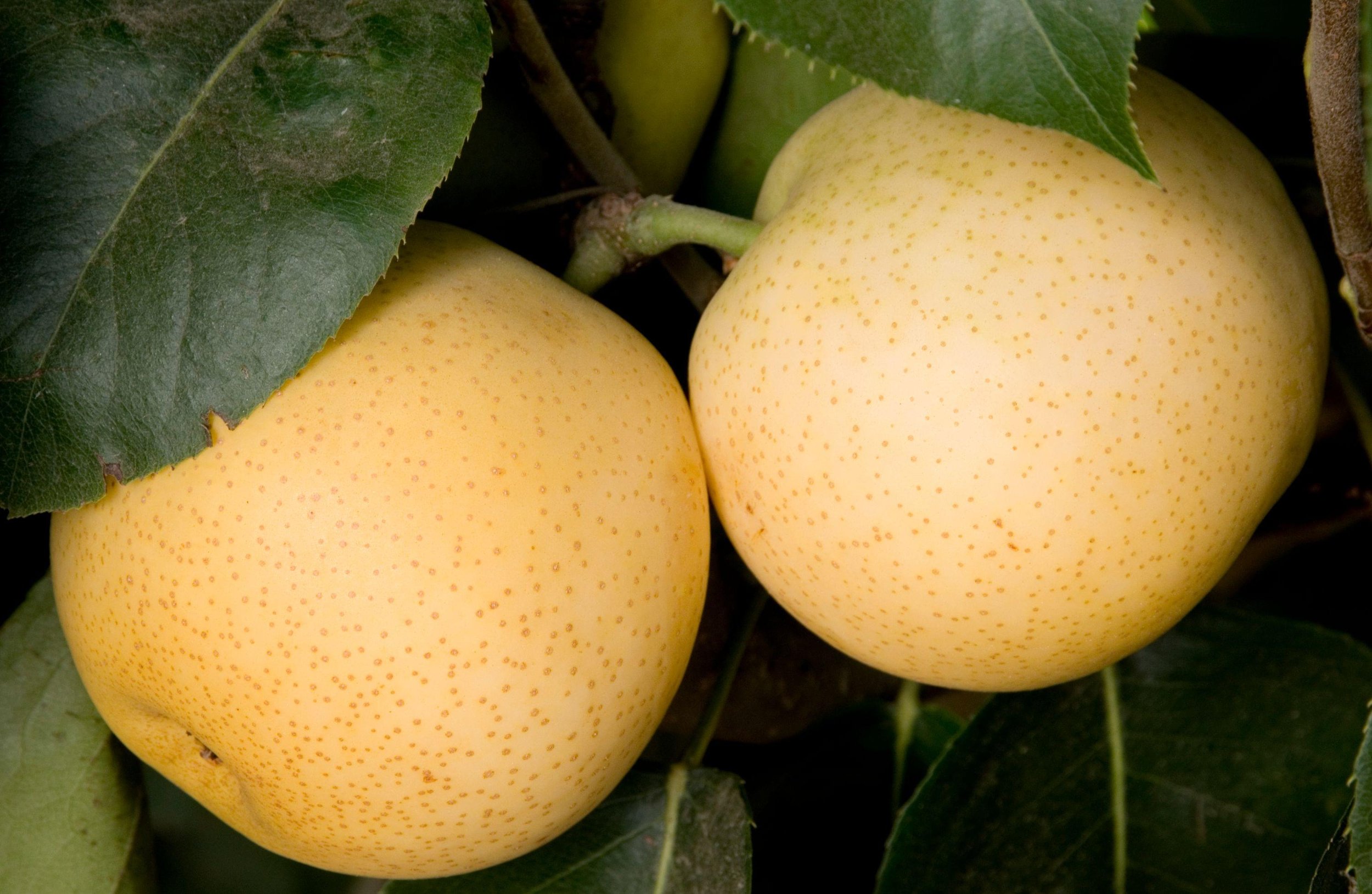
Our Asian Pear Selections
If you plan to grow fruit trees in the Bay Area, you must consider site factors like sunlight, soil conditions, and your watering practices. Choosing the right variety, providing adequate sunlight, and proper pruning are all important for success and will reduce the potential for pest and disease problems.
-
Mature Size:
Many Asian Pears, if unpruned, can get very large. Be sure to choose one appropriate to your garden and plan to prune regularly.
Cross pollination:
Asian Pears are semi self-fruitful and will produce enough fruit you, your neighbors, and your friends, however, cross pollination will increase crop production.
Air Flow:
Air movement, even the slightest breeze, is key to dry the leaves from the morning dew. Without it your Asian Pear will be prone to leaf fungal problems.
-
In the Bay Area, the best growing conditions for Asian Pears involve full sun, well drained soils, and good airflow.
Specific Growing Conditions:
Sunlight: Asian Pear trees need at least six to eight hours of direct sunlight per day.
Soil: Well-drained, sandy loam soil is preferred. Amending clay soil with organic matter can improve drainage. Avoid planting where winter rains may puddle.
Irrigation: Asian Pears require moderate irrigation during dry periods of our year. Typically, a well-established tree may only need a slow deep watering every 10-14 days. A newly planted tree will need lighter more frequent watering.
Mulch: Mulching helps regulate soil temperature, retain moisture, and suppress weeds.
Fertilization: Supplemental fertilization is typically needed to ensure the tree receives adequate nutrients for the best flavored fruit.
Pruning: Pruning is often overlooked yet, when done properly, can help increase fruit production and improve air flow through the tree which decreases the incidents of disease and pest outbreaks.
-
Most Common Pests:
Aphids
These tiny insects suck sap from leaves and fruit, causing damage and potentially spreading diseases.
Scale
Various types of scale insects can infest Asian Pear trees, sucking sap and weakening the tree.
Controls
Aphids and Scale can be controlled with Fertilome’s ’Neem’ which is approved for organic gardening. As with other oil-based garden sprays it is best to apply either in the very early morning or evening to prevent leaf burn. If pollinators are present, apply in the evening after foraging activity has stopped.
Most Common Diseases:
Fire Blight
This bacterial disease causes sudden wilting and death of flowers, blossoms, and young shoots, and can be fatal to the tree.
Controls
The best defense from Fire Blight is to follow a regime of applying Fertilome’s ‘Fungicide 5’, a biofungicide that is approved for organic gardening, during the growing season. Follow this by treating your trees in winter with Fertilome’s ‘Copper Fungicide’ (approved or organic gardening) or Monterey Lawn and Garden’s ‘Liquid-Cop’. Winter applications of either of these two products can greatly reduce the frequency and severity of disease outbreaks during the growing season.
~ THIS LIST MAY NOT ACCURATELY REPRESENT OUR CURRENT STOCK ~
Thank you Dave Wilson Nursery for the use of your images and descriptions.




Juicy, sweet, mild flavored fruit is crisp like an apple. Keeps well. Easy to grow, heavy bearing small tree.